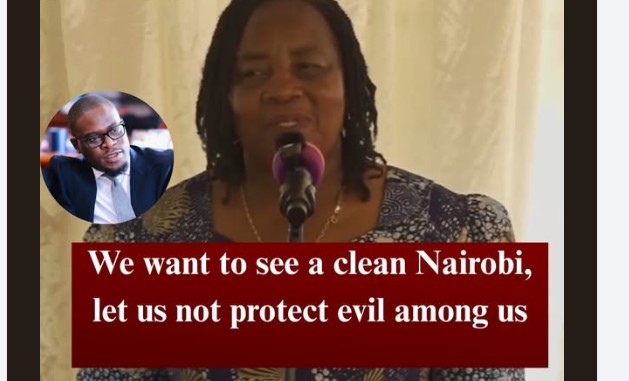Dr. Ida Odinga, a respected educationist and wife of Azimio leader Raila Odinga, has once again demonstrated her commitment to integrity and good governance through her recent remarks directed at Nairobi leadership. During a meeting with Nairobi Members of County Assembly (MCAs) in Bondo, Ida Odinga made a passionate appeal for accountability, stating, “We want to see a clean Nairobi, let us not protect evil among us.” Her words, though seemingly general, carried a powerful message that resonated across the political spectrum and were widely interpreted as a call-out to Nairobi Governor Johnson Sakaja and his administration.
At the heart of Ida Odinga’s statement lies a demand for transparency and moral responsibility in the management of Nairobi County. As Kenya’s capital and economic hub, Nairobi faces chronic challenges, including corruption, poor waste management, and ineffective service delivery. Ida’s call for a “clean Nairobi” goes beyond the physical cleanliness of the city—it symbolizes a desire for ethical governance, where public officials act with honesty and accountability. Her message emphasizes that true leadership involves not only political success but also moral uprightness and public service integrity.
By cautioning leaders “not to protect evil among us,” Ida Odinga addressed a persistent problem in Kenyan politics—the culture of silence and protectionism that often shields corrupt individuals from accountability. This culture has allowed unethical practices to thrive within political and administrative systems. Her statement challenges leaders, particularly MCAs who play an oversight role, to resist the temptation of complicity and to prioritize the interests of citizens over political loyalty or personal gain. In doing so, Ida reinforces the notion that fighting corruption begins at the local level, where accountability can have the most immediate impact on people’s lives.
Ida’s remarks also carry significant political weight given the ongoing tensions within Nairobi’s county government. Governor Johnson Sakaja has faced criticism over issues such as waste management, poor infrastructure, and alleged misappropriation of funds. While Ida did not directly name him in her statement, her timing and audience—a gathering of Nairobi MCAs—suggest a deliberate effort to urge local leaders to hold the executive accountable. Her comments reflect the Odinga family’s longstanding advocacy for ethical leadership and clean governance as core principles of national development.
Beyond politics, Ida Odinga’s statement serves as a moral reminder to Kenyan leaders and citizens alike. It reinforces the idea that cleanliness, both literal and metaphorical, begins with individual responsibility. Nairobi’s problems cannot be solved solely by government intervention; they require collective action, civic discipline, and a shared commitment to the common good. In this sense, her message transcends partisan politics and speaks to the values of honesty, integrity, and responsibility that should define public service.
Ida Odinga’s remarks in Bondo highlight the enduring importance of moral leadership in Kenyan politics. By urging Nairobi MCAs and leaders not to “protect evil among us,” she called for a culture of accountability and transparency that is essential for sustainable development. Her appeal for a “clean Nairobi” serves as both a literal and symbolic call—to clean the city’s streets and, more importantly, to cleanse its systems of corruption and moral decay. Whether her words will inspire tangible change in Nairobi’s governance remains to be seen, but her message of integrity and accountability continues to resonate as a powerful reminder of what true leadership should embody.



